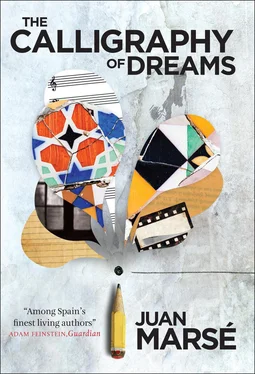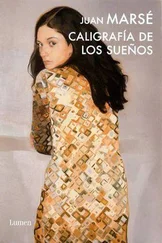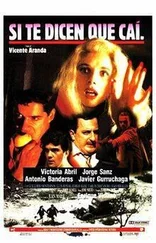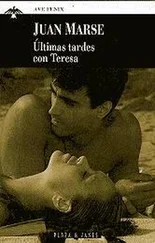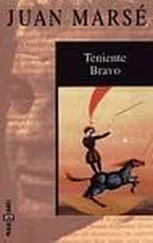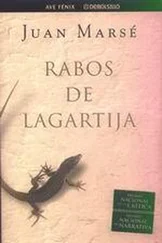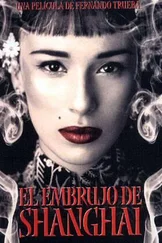“Stand back or you’ll singe your nose,” his father warns him. “Go and find a dry branch somewhere.”
But the best spot is close to the fire, the warm heart of an inhospitable night full of reddish glows and the long faces of worried people talking in whispers. The faces pucker and say things he doesn’t understand: they talk in low voices about a surprise police raid on Señor Oriol’s house, of the large number of books impounded, a disgraceful abuse, Berta, and with what excuse, eh, what crime is he accused of? Good God, you can imagine. Nor can Ringo understand when someone hidden in the darkness intones “Who lights the fires where none were lit before?” and flames leap out of the roaring bonfire like long-fingered hands calling for and greedily receiving still more books. The thick, swirling smoke reminds him of the genie Djinn springing from the bottle after the sea waves have thrown it up onto the beach, the black smoke against the sky that suddenly turns into a giant, whose booming laughter astonishes the tiny Sabu.
This is during the dying days of a long Barcelona winter, his scarf wrapped round his ears, and his feet always cold, in the street and in the cinema, at school and in the parish choir, under the greenery of Parque Güell and on the slopes of Montaña Pelada. He has just turned eight, his nose is red, curly hair, good big ears, slightly bow-legged like a cowboy, and with his eternally cold feet. Not tonight though, in the dark, overgrown garden where the fire curls books and notebooks, diaries and photos, all kinds of documents and postcards and the identity cards of his father, Señor Huguet, and of some neighbours who have also joined in the burning. He watches forlornly as the flames devour a next-to-new spiralbound notebook with squared-off paper and a cream-coloured cover where someone has written C.N.T. Membership Dues — the anarchist union. He has always wanted to have a book like that. A week before he had seen his father at the dining-room table with this notebook open in front of him, patiently using a razor blade to scratch out names and figures from its pages, until at length he grew tired and furiously threw the blade into his glass of wine, shouting: All on the bonfire, it’s safer that way!
Gusts of wind send pages that have come loose from some volume or other flying into the sky, where they hang for a moment on the crest of the flames, fluttering like huge black butterflies in the midst of a crackling shower of embers. Also burning on the fire are some papers from the private library of the elderly Don Víctor Rahola, a neighbour and friend of Señor Huguet’s. The boy hears Don Víctor himself say this, laughing cheerfully as he does so. He doesn’t seem at all bothered if the flies come or not. You’re not far wrong, nano , because my papers are buzzing through the air like flies! Ringo recalls that the previous summer his mother had been this man’s night nurse in his pretty villa up on Paseo del Monte, looking after him as he lay in bed under a big mosquito net, and that she had told him that Don Víctor was a wise, polite old fellow who loved practical jokes, a writer who no longer writes and often asks her to sit by his bed and read him a book.
“Don’t take your scarf off, Son.”
He sometimes wonders why his mother is never exactly a nurse like all the others. She herself told him one day: I’m not exactly a nurse, I’m more of a care assistant, and a friend of the nuns. She only looks after old people in homes, residences or their own houses, but she is not a qualified nurse. She works at night and is badly paid.
The bonfire’s scorching heat forces the books open, and finger-like flames flick through their pages. Just in case the flies come, he hears someone mutter again behind his back. And also if the cockroaches arrive, or the rats, or lice, he thinks. On some street corners in their neighbourhood there are piles of rubbish that also attract flies, but he cannot imagine why they would want to descend on this fire. Let them come, he says to himself, my father can kill them with his rat poison, together with all the mosquitoes, moths and bugs who dare poke their noses in. He has never needed to light a fire to get rid of them before, and yet here he is now, watchful and diligent, stoking the embers with his stick wherever necessary, pushing back into the flames any publications that fall out or scraps of charred paper. Why though is he burning only Catalan books, just in case? Does that mean they’re books that attract flies, Mother, infected books and documents with fly droppings on them? Is that why they have to be burnt? Because they could infect us all?
But she pays him no attention, or does not hear, and has no idea what he’s talking about. Ringo sees her on the arm of a neighbour, Señora Rius. He watches them with their heads close together, exchanging sad glances, both of them wearing tight-fitting coats with the collars raised. His mother’s constant tendency for sadness … What kind of horrible flies can they be, Mother? Are they tsetse flies, the ones that give you sleeping sickness? Yes, they’re a bit like that, my boy, says Señora Ruiz, with a faint, friendly smile: they put you to sleep and your dreams turn into nightmares. Are the books terribly dangerous for children, sinful books, full of illustrations of naked nymphs with transparent fly’s wings on their back, or fairies with flowing locks and naked breasts who sleep in the lakes and float though the woods, sweet air and water sprites like in that small book you keep at home, Mother, the one with those lovely drawings you like so much? Are the flies that might come so dangerous? Is that why we’re here at night in Señor Huguet’s garden to help father and his friends, just in case the flies come? Yes, we’re here to help. Keep your scarf on properly. So where are the flies? he insists.
The answer comes in the barely audible rustle of burning pages, the murmur of words turned to ashes, an endless buzzing in the boy’s ears. He will hear this again so often that it becomes an insistent whistle.
“Not so close, pumpkinhead, or you’ll get burnt,” his father warns him.
They joke with him, especially his father, and yet he is aware that all those there seem dejected. One of them talks in a low, mournful voice of Don Víctor’s brother, who died barely two years ago, and the boy understands that he was killed by blue flies that had previously destroyed his books. Standing close to the flames, he watches fascinated as the volumes open like black flowers, the pages twisting and turning black while sparks like fireflies climb into the starry night sky. He thinks he can see that the fire is separating the words from the pages, which then fly up for a moment before turning into whirling embers, words and embers joined together as they rise into the night. He suddenly feels the need to step back a few paces, grasp his mother’s welcoming hand and hear her whisper, this time more to her friend than to him: Your father knows what he’s doing. They’ll come with a search warrant, and it’s better they find nothing, isn’t it, María? The eager flames are also reflected in her pinched, sleepy face, as her husband, the irrepressible, merry Capitán of the Rat-catcher brigade, jokes and curses while he wields his stick: “We’re the arsehole of the world, my boy, I’ve told you many times. So now we’re going to warm that arsehole up.” His mother’s thin, cold left hand with its long fingers and pale, unvarnished nails, squeezes his, trembling slightly in a way that distresses him.
“Stay here with me, Son.”
He has seen those fingers sticking a hypodermic needle into the thick, rough skin of an orange, of many oranges, doing the injection over and over again with an unsure, trembling hand, trying and trying until she has perfected it. Why don’t you use your right? He has asked her sometimes. She practises for a few minutes every day before she goes off to work, and for a while at night before going to sleep. She sits on the edge of the bed with her shawl wrapped round her, her back to her husband, who has buried his head under the pillow. On the bedside table there’s a small image of the Infant Jesus of Prague, and the lamp is covered with a red cloth in order not to disturb the Rat-catcher’s sleep, just as it was when Ringo had measles and spent happy hours in the company of The Jungle Book . After a few uncertain tests, with the orange in her right hand and the needle in the left, she administers the jab, suddenly but delicately, quickly but as gently as possible. This is her patient way of learning how to give injections, now that the nuns at Las Darderas have taken her on to look after old people in their residence on Calle Sors, or in their home. She will soon also learn to wrap bandages and to wash old people’s behinds, put them to bed, feed them and keep them entertained by playing cards or Ludo with them, or reading them a book, but what she finds most difficult is to give injections, because she is frightened of hurting them. She occasionally complains she isn’t strong enough to lift some stout, heavy grandmother in and out of the bath, but she is grateful to the nuns for the work, and always finds some reason for being happy.
Читать дальше
